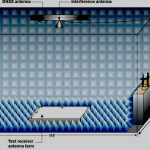Assertions by Virginia-based Ligado that its GPS interference issues were largely resolved were called into question by statements made by two key agencies and fresh opposition to a related spectrum request from nearly two dozen companies and associations.
Assertions by Virginia-based Ligado that its GPS interference issues were largely resolved were called into question by statements made by two key agencies and fresh opposition to a related spectrum request from nearly two dozen companies and associations.
Ligado is seeking to build a terrestrial broadband network using frequencies close to the GPS band that had been allocated originally for satellites. The Federal Communications Commission (FCC) put the firm’s plans on hold in 2012 after testing showed that signals from the tens of thousands of new ground stations involved would interfere with a wide range of GPS receivers. The firm, which at the time went by the name LightSquared, filed for bankruptcy shortly thereafter. It emerged in 2015 with a new name and a modified plan dropping the system’s power and abandoning the most troublesome frequencies.
Recently the firm has been suggesting in its filings and elsewhere that the interference issues are now all but put to bed.
Tamara Casey, Ligado’s chief technical officer, told Aviation Week in April that: “All the technical obstacles have been cleared and [the FCC] is dotting the i’s and crossing the t’s.”
“Ligado believes it is finished with GPS concerns,” wrote Senior Analyst Andrew Spinola and Associate Analyst Martha Masiarz of Wells Fargo Equity Research in the May 22 edition of their publication Satellite Commentary & News. Their analysis was based on a Ligado call with its lenders and a direct discussion with Ligado, they said. Inside GNSS has confirmed other similarly rosy declarations with other, unrelated sources.
FAA
According to Spinola and Masiarz, Ligado also “believes that the FAA (Federal Aviation Administration) has agreed that the proposal protects aviation and this is no longer an issue.”
When asked what the FAA’s position was with regard to Ligado, or if the agency had come to an agreement or understanding with the firm, a spokesperson for the U.S. Department of Transportation (DoT) said: “There are no agreements between DoT (including FAA) and Ligado with respect to this effort.”
The spokesperson pointed to work still being done on DoT’s GPS Adjacent Band Compatibility Assessment to address interference issues.
“The study is designed to evaluate the adjacent radiofrequency band power levels that can be tolerated by GPS and Global Navigation Satellite System (GNSS) receivers,” said the spokesman, “and to advance the Department’s understanding of the extent to which such power levels impact devices used for transportation safety purposes, among numerous other civil GPS/GNSS applications."
There are two components of the DoT Study, the spokesperson emphasized. One, led by the FAA, is focused on certified GPS avionics, and includes analysis to determine the adjacent band power level that conforms to existing certified GPS aviation equipment standards. The second study, being conducted by DoT, focuses on the interference susceptibility of GPS/GNSS receivers for all civil applications. The results of that testing are Interference Tolerance Masks (ITMs) based on a 1 decibel degradation in Carrier-to-Noise Ratio (CNR) that provide the maximum aggregate power level as a function of frequency.
Air Force
Maj. Gen. Catherine Chilton, the mobilization assistant to the Commander of Air Force Space Command, told the nation’s leading GPS experts that the Air Force supported the ABC Assessment and agreed with DoT’s perspective on using the 1 decibel standard — commonly referred to as 1dB.
“The Air Force is behind the international 1 decibel interference criteria standard and the testing that DoT is doing,” Chilton told Inside GNSS while at the National Space-Based Positioning, Navigation, and Timing (PNT) Advisory Board meeting.
As the managers of the GPS program, the Air Force’s perspective carries great weight. Their support for the 1 decibel standard is particularly important because Ligado has been asserting that the yardstick for GPS interference should be changed to one based on position error. The Advisory Board has already expressed its strong support for the 1 decibel standard.
"We have worked with the (Federal Communications) Commission and interested parties for nearly two years to resolve interference concerns, including signing cooperation agreements with major GPS companies that ensure Ligado is compatible with GPS and will not interfere with aviation safety or the NOAA’s (National Oceanic and Atmospheric Administration’s) operations,” said Ligado in a written comment. “Safety of life is paramount, and that’s why we have collaborated extensively with the FAA to protect aviation safety and provide the industry with an advanced level of connectivity currently unavailable today.”
Upper Band Opposition
As noted earlier, Ligado plans to forego using the 10 megahertz of spectrum located closest to the GPS band. To help make up for that they are now asking to share a 5 megahertz band used by NOAA for weather satellites. These frequencies are adjacent to ones Ligado already has, which would give the firm 10 megahertz for its operations.
Iridium, which had already stated its issues with Ligado’s plans, joined 21 other organizations — including the Aerospace Industries Association, AccuWeather, International Air Transport Association and the American Meteorological Association — to express their opposition to Ligado’s plans until all interference issues could be addressed.
“We have read with interest recent FCC filings and statements in the press from Ligado claiming that virtually all of the opposition to its pending license modification application and request for rulemaking to utilize spectrum at 1675-1680 MHz have been resolved,” the parties wrote in a June 27 filing with the FCC. “Contrary to the assertions in Ligado’s FCC advocacy and recent media blitz, its proposed terrestrial operations continue to pose a significant interference risk to numerous parties that receive real-time weather and related environmental information from the National Oceanic and Atmospheric Administration (“NOAA”), certified GPS receivers and aeronautical safety SATCOM relied upon by the aviation industry, and Iridium’s 869,000 government and commercial subscribers.”
Ligado told Inside GNSS that it has proposed alternatives for NOAA and has already addressed the other signatories’ issues.
“We have proposed that NOAA use a fiber cable and cloud-based delivery system for its weather data,” Ligado said in a written comment. “This proposal and Ligado’s commitment to protect NOAA’s own operations will allow an auction of the 1675-1680 MHz band and preserve NOAA’s mission. The recent filing contains no new information, no new technical analysis, no new data. It is simply a re-packaging of the same old complaints, all of which have already been amply addressed in the record before the FCC.”
“Each of the undersigned organizations has serious unresolved concerns with Ligado’s proposed operations for different reasons,” the 22 groups wrote. “What we each have in common is the shared belief that the Commission cannot act on Ligado’s requests until the Commission has sufficiently studied and addressed the many interference issues still outstanding, including the receipt of input from the affected federal agencies who are also studying these issues.”
If it’s not possible to reach a satisfactory agreement, they continued, the Commission should deny Ligado’s pending license modification application and reject Ligado’s proposal to share the 1675-1680 MHz band spectrum with NOAA.
“The existing services provided by the SATCOM, aviation and real-time environmental satellite data communities, which depend upon interference-free operations in spectrum adjacent to or co-channel to spectrum central to Ligado’s plans are too important to jeopardize," the group wrote, "especially for the speculative benefits of Ligado’s constantly evolving proposals.”






